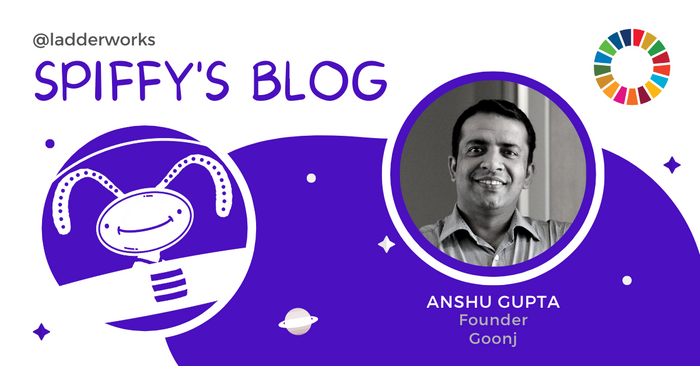Shuvro Ghoshal: Bridging the Gap Between Indian Fans and Indian Sports



Anshu: It’s great to be here, Spiffy! Goonj’s work encapsulates a closed loop of circularity along with work on climate emergencies with resilient communities pan-India. The dignity of people, indigenous knowledge and wisdom, and primarily their efforts towards achieving common development goals take center stage in the idea. The novelty lies in the urban surplus—the world's so-called discard which serves as an instrument of change empowering people to become drivers of their development challenges.
In urban spaces, our call to the community is to, “Goonj it..,” a manner through which high-end consumerism meets a closed loop of circularity embracing and enhancing the lifecycle of material and thereby making a significant impact in contributing towards decarbonization and water usage. Similarly in rural spaces, by emphasizing participation and climate action work, Goonj impacts material poverty, helps catalyze the self-development of rural communities, and leads to the making of diverse rural assets and distributed equitable employment generation.
Focusing on the last mile, our footprints are in villages of some of the most marginalized states of India like Odisha, Bihar, Madhya Pradesh, West Bengal (WB), several communities across the hilly terrains of Uttarakhand, tribal villages of Chattisgarh and Jharkhand, and the Sunderbans (WB). These communities, which are vulnerable to climate emergencies such as floods, cyclones, and extreme weather, live in remote, inaccessible, and disturbed areas and often turn into climate refugees necessitating community-led decision-making and local nature-based solutions.
For more than two decades now, Goonj has dealt with millions of tons of material annually, and in the last nine years, Goonj has dealt with over 55 million kilograms of material, reaching out to 31 states and union territories, touching the lives of about 15.72 million people. This is how we build a bridge between urban abundance and rural scarcity and economic poverty. The impact multiplies exponentially as sustainability, regeneration, and development are all woven together into systemic well-being.
